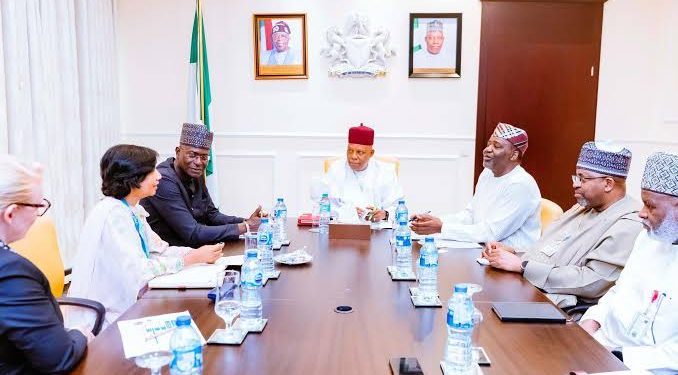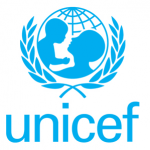The Nigerian government has renewed its strategic collaboration with the United Nations International Children’s Emergency Fund (UNICEF) to equip 20 million young Nigerians with digital skills by the year 2030. The initiative is part of ongoing efforts to bridge the country’s youth employment gap and position the younger generation for success in a tech-driven global economy.
Vice President Kashim Shettima disclosed the renewed commitment during a meeting in Abuja with Mohammed Fall, the United Nations Resident and Humanitarian Coordinator in Nigeria. The session also included key UNICEF officials, including Deputy Representative Dr. Rownak Khan and Chief of the Lagos Field Office, Celine Lafoucriere.
With Nigeria’s population exceeding 230 million and an average age of 17, the Vice President described the country’s youth demographic as both a significant challenge and a major opportunity. He emphasized the urgency of digital empowerment and accepted to serve as the Chairman of Generation Unlimited Nigeria (GenU 9JA), a platform designed to transition young people aged 10 to 24 from learning to earning through digital innovation.
He stressed that true development goes beyond lofty ideals, noting that empowering young people through digital skills is the most viable path to sustainable progress. According to him, the GenU 9JA platform aligns with the Federal Government’s Renewed Hope Agenda, which focuses on inclusive development and innovation-led transformation.
Vice President Shettima also underscored Nigeria’s desire for meaningful, balanced partnerships rather than aid-based relationships. He said the goal is not charity but a future driven by mutual interests and shared value, especially in leveraging digital technology for youth advancement.
He highlighted that the digital space offers young Nigerians the opportunity to work and compete in the global economy. From remote jobs to freelance platforms, many young Nigerians are already earning from global firms without leaving their homes, a trend the government intends to accelerate through the GenU 9JA initiative.
UN Coordinator Mohammed Fall commended Nigeria’s leadership and reaffirmed the UN’s support. He emphasized that GenU is vital to tackling the triple burden of youth unemployment, unequal education access, and limited digital connectivity. Fall noted that under Nigeria’s Renewed Hope Agenda, digital access and youth inclusion are national priorities.
UNICEF Deputy Representative Dr. Khan described GenU 9JA as one of UNICEF’s most effective youth empowerment models globally. She said its structure—based on digital connectivity, career transition, and active youth engagement—prepares young Nigerians for modern employment demands.
According to Khan, the programme has already delivered remarkable results, positioning Nigeria as a model of youth-driven digital development. UNICEF Lagos Chief Celine Lafoucriere added that since GenU 9JA’s launch in 2022, it has impacted over 10 million young people and facilitated 1,500 job placements.
She stressed the importance of strengthening coordination among stakeholders and aligning with national policy to meet the 2030 target. The renewed partnership signals a stronger push to scale up youth empowerment and ensure that digital innovation drives inclusive growth for Nigeria’s next generation.










